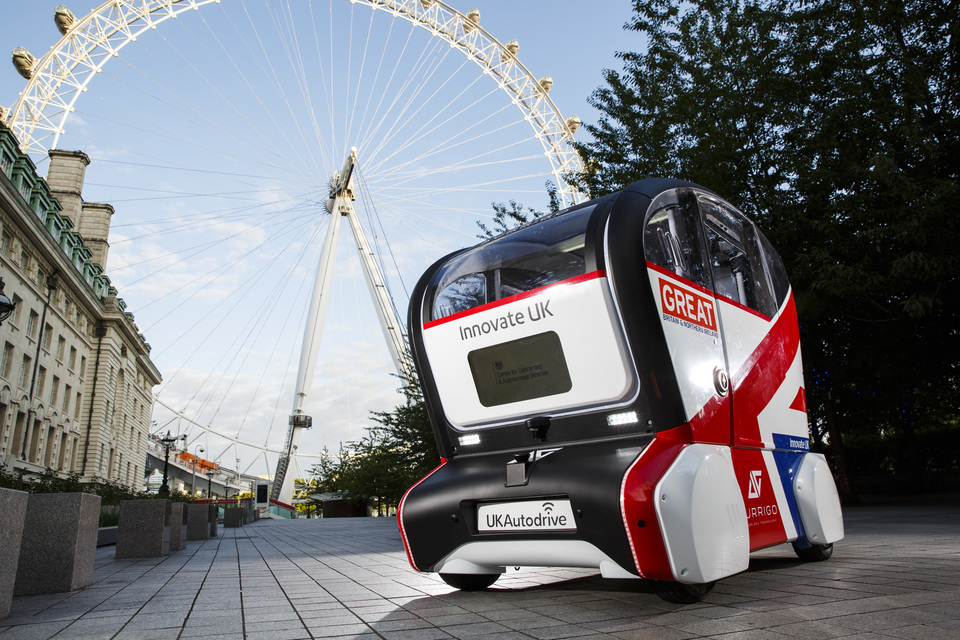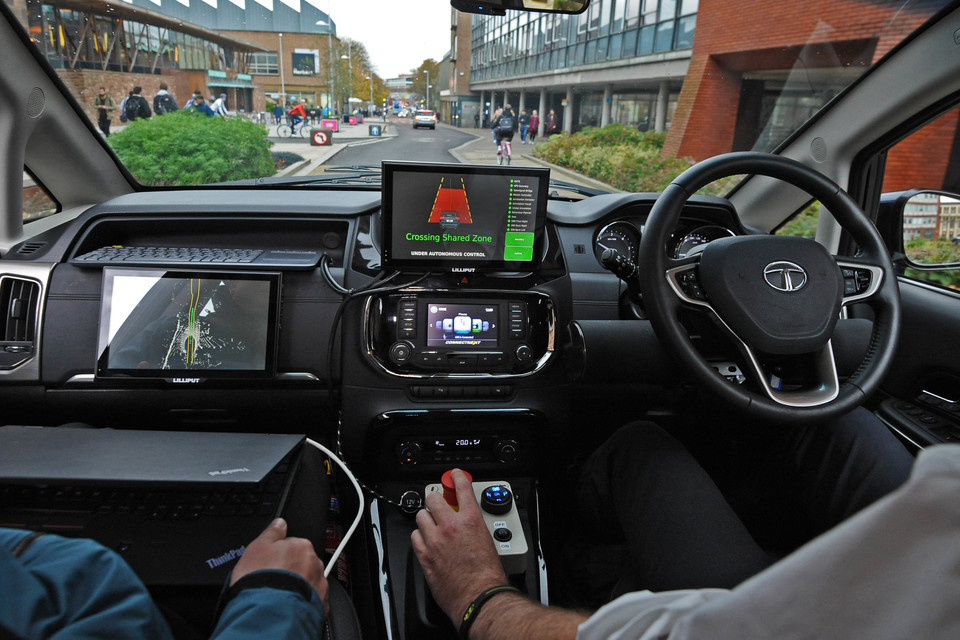Communications Committee takes evidence on Tuesday 26 June at 3.30pm
Link: Competition law and tech experts discuss online regulation
Source: Parliamentary News
Communications Committee takes evidence on Tuesday 26 June at 3.30pm
Link: Competition law and tech experts discuss online regulation
Source: Parliamentary News
Small and medium sized businesses (SMEs) across the hospitality and retail sectors like high street cafés, restaurants and shops, as well as schools and colleges are set to benefit from new, innovative ideas aimed at reducing their energy use.
Together these sectors use the same amount of energy as 4.3 million homes, but through more efficient practice this number could be cut by more than 1 million. Funding of £8.8 million has been awarded to help develop and evaluate technologies that will help these sectors take control of their energy use through the use of smart meters, as part of the government’s modern Industrial Strategy.
The innovative smart technologies of an upgraded energy grid, like electronic household devices and thermostats you can control from a mobile phone, can help the country save up to £40 billion on energy costs over decades to come and smart meters will be central to this revolution.
The UK based competition winners, ranging from small energy management companies to tech giants Samsung and Toshiba, have designed smart information systems that give businesses real-time, tailored data on their energy use, helping them save money by being more efficient.
The benefits range from highlighting spikes in energy use in real-time and recommending ways to cut use in the long-term, to identifying faulty equipment or inefficient ways of working.
Over 11 million smart meters are in operation in homes and small businesses around Great Britain, helping consumers take control of their energy use and bring down their bills. Despite this, there is currently a lack of products specifically aimed at small and medium-sized businesses to help them to use their smart meters to take control of their energy consumption. Competition winners have been granted funds to develop such products.
Minister for Energy and Clean Growth Claire Perry said:
The scale of the ambition displayed by the winning projects demonstrates that the UK is ready to lead the world when it comes to helping smaller businesses understand their energy use through smart systems.
Energy costs for businesses can be one of the hardest things to understand and control, but these projects can change that, as well as help educate the next generation in our schools on the importance of controlling our energy consumption.
Smart meters are an opportunity for us to rewrite the rules on how we engage with the energy market and these winners will ensure that the benefits can be felt by businesses and schools as well as homes.
RAE2, an energy management system will acquire data from Smart / Advanced Meters and undertake complex analytics in order to create a visual representation of energy usage for the business or site. As a result of this analysis, the system will be able to:
Considerate Hoteliers is developing an energy management app for the SME hospitality market to drive savings in energy and thus cost and carbon emissions across the sector. The app will provide users with information they can act on immediately to minimise operational inefficiencies and reduce energy consumption and associated costs allowing them to see:
The 9 competition winners are:
Ipsos MORI and the Carbon Trust will help evaluate the impact and effectiveness of competition projects as they develop, and provide support to participants.
This will generate a practical evidence based on what works best for businesses to engage with their smart meter data, and change their behaviour to reduce energy consumption.
Link: Press release: Helping small businesses to control their energy costs
Source: Gov Press Releases
Under new government regulations published today, trustees will be required to produce a policy which includes an assessment of the sustainability of their investment decisions.
This policy will need to be available to members so that they can make their own assessment of efforts to combat various risks, including climate change, poor corporate governance and socially harmful practices.
The government is bringing forward reforms to take account of how people put their values at the heart of the things they choose to buy, the places they live and visit, and the jobs they do. They care about the impact that their choices have on our environment and humankind.
Under these proposals pension scheme members will be able to see how their money is being put to work, and to make their views heard. Defined contribution schemes will need to make this policy available to the wider public.
More than £1.5 trillion is invested by occupational pension schemes on behalf of millions of savers across the UK and an additional £40 billion was invested in 2016/17 and under automatic enrolment.
With more and more young people saving into a workplace pension – 77% of eligible 22 to 29 year olds working in the private sector are now enrolled in a workplace pension – it is important that their views are reflected in the investment decisions made on their behalf.
Rt Hon Esther McVey, Secretary of State for Work and Pensions said:
These new regulations will empower savers all over Britain, ensuring that their voices are heard when their savings are invested.
As we see the younger generation who care more about where their money is going, they are also increasingly questioning that their pensions are invested in a way that aligns with their values. This money can now be used to build a more sustainable, fairer and equal society for future generations.
Minister for Sport and Civil Society, Tracey Crouch said:
This is an exciting opportunity for social impact investment, giving pensions trustees a chance to have a resoundingly positive effect on the global issues that matter to savers.
Read the consultation on clarifying and strengthening investment duties of pension trustees.
Read the government’s final response to the Law Commission’s report: Pension funds and social investment.
Caxton House
Tothill Street
London
SW1H 9NA
London Press Office (national media and London area enquiries only – not questions about personal claims)
020 3267 5144
Out-of-hours (journalists only)
07623 928 975
England and Wales (local media enquiries)
029 20 586 then 097 or 098 or 099
Scotland (local media enquiries)
0131 310 1122
Follow DWP on:
Link: Press release: Billions invested by pension schemes to be used for social good under new regulations
Source: Gov Press Releases
ICO statement in response to Dixons Carphone breach announcement.
Link: ICO statement in response to Dixons Carphone breach announcement
Source: ICO .org.uk
Yahoo! UK Services Limited has been fined £250,000 by the Information Commissioner’s Office (ICO) following a cyber-attack in November 2014.
Link: Yahoo! fined £250,000 after systemic failures put customer data at risk
Source: ICO .org.uk
The British and Foreign Bible Society, based in Swindon, has been fined £100,000 by the Information Commissioner’s Office, after their computer network was compromised as the result of a cyber-attack in 2016.
Link: Bible Society fined £100,000 after security failings put supporters’ personal data at risk
Source: ICO .org.uk
Companies are today invited to bid for £30 million of funding to support the development of self-driving vehicles on UK roads, Business Minister Richard Harrington announced today.
Funded through the Centre for Connected and Autonomous Vehicles (CCAV) and Meridian, the Government’s unique hub for testing autonomous technology, the competitions see Government and industry jointly investing in UK businesses to help realise the Government’s ambition to see fully self-driving vehicles on UK roads by 2021.

The next round of the competition could answer drivers’ parking woes since up to £5m will be awarded to projects developing and testing autonomous parking technology. This technology will allow self-driving cars to park in a range of different environments without human intervention. The money will also fund two public-testing sites for self-driving cars in urban settings, the first of the kind in Europe, these sites will ensure that connected and autonomous vehicles to become a normal feature on UK roads. It is part of the modern Industrial Strategy’s Mobility Grand Challenge to invest in and shape the design, development and manufacture of the transport system of tomorrow.
Automotive Minister Richard Harrington experiences CAV technology first-hand
Business Minister Richard Harrington said:
Self-driving vehicles have the potential to revolutionise the way we move people and goods across the UK. They also support our ambition for a cleaner, greener future as part of our modern Industrial Strategy. The UK is already leading the way in developing this technology and today’s funding will bring self-driving vehicles one step closer to becoming a normal feature on UK roads and could, in time, make learning to parallel park a thing of the past.

Today’s launch builds on the success of an earlier competition round which saw four UK projects awarded a total of £51m to test the speed, safety and potential opportunities for delivering connected and autonomous (CAV) innovation.
Chair Automotive Council Technology, Graham Hoare said:
On behalf of the Automotive Council, I welcome the latest developments at Meridian Mobility Technology, the UK’s CAV Development Capability. Meridian continues the acceleration of the UKs CAV development facilities with the announcement of important partnerships as part of the latest outcomes of the TestBed program, Wave 2&3. These new capabilities will complement our strengthening UK Test capability with the advantage of a ‘one stop shop’ mind-set for the industry.

The UK’s Industrial Strategy is a long-term plan to build a Britain fit for the future through a stronger, fairer economy. Through this we will help businesses to create better, higher-paying jobs – setting a path for Britain to lead in the high-tech, highly-skilled industries of the future.
The Industrial Strategy names four Grand Challenges to put us at the forefront of the industries of the future. The challenges will direct the focus of Government and engage the private sector, academics and civic society to ensure we take advantage of major global trends, improving people’s lives and the country’s productivity.
Notes to Editors –
Specific information about the two funding competitions, which will be delivered by Innovate UK:

Link: Press release: Self-parking cars could be on a street near you by 2021
Source: Gov Press Releases
Today (25 May) marks the biggest change to UK data protection law in a generation.
Link: New data protection laws put people first
Source: ICO .org.uk
Elizabeth Denham welcomes the new Data Protection Act 2018 alongside the GDPR. Organisations and data protection professionals could use this as an introduction to the new Act.
Link: Beyond 2018 – data protection laws built to last
Source: ICO .org.uk
Link:
Source: Legislation .gov.uk